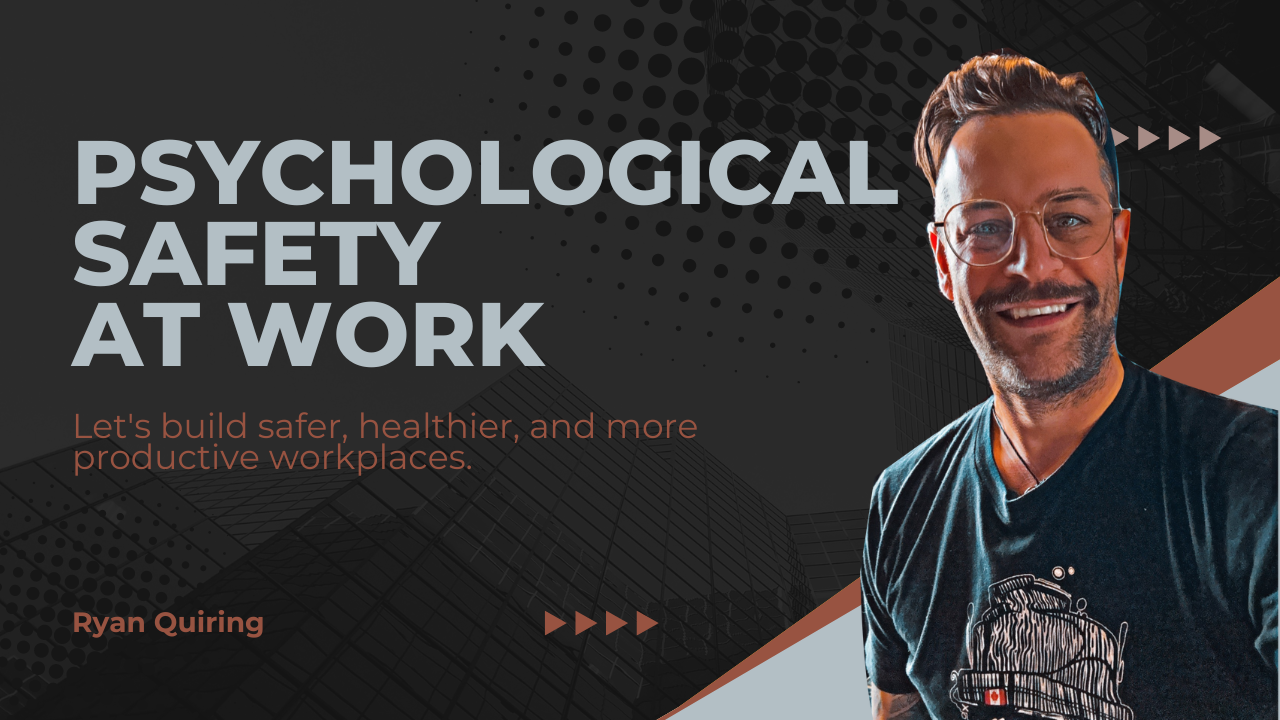Today, we’re exploring a skill that’s absolutely crucial in creating a psychologically safe workplace: empathy. As someone who’s worked with diverse teams and navigated complex workplace dynamics, I can tell you that empathy isn’t just a nice-to-have soft skill—it’s a fundamental driver of overall workplace well-being.
Let’s start by clarifying what we mean by empathy in the workplace. Workplace empathy is consciously understanding and appreciating colleagues’ perspectives, experiences, and feelings. It’s about seeing the world through their eyes, even for a moment.
Now, why is this so important? When we truly understand where our colleagues are coming from, it changes everything. It improves communication, reduces conflicts, enhances teamwork, and creates an environment where people feel valued and understood. And when people feel understood, they’re more likely to bring their whole, authentic selves to work.
So, how do we put empathy into action? Let’s break it down:
- Practice active listening. This means truly focusing on what your colleague is saying rather than just waiting for your turn to speak. Pay attention not just to their words but also to their tone, body language, and what they’re not saying. Ask clarifying questions. Show that you’re engaged and interested in their perspective.
- Suspend judgment. It’s human nature to form opinions quickly, but genuine empathy requires us to pause our judgments. Instead of immediately deciding if someone is right or wrong, try to understand why they think or feel the way they do. What experiences have shaped their perspective?
- Put yourself in their shoes. This advice is classic for a reason—it works. When faced with a differing viewpoint or a conflict, imagine yourself in your colleague’s position. What pressures might they be under? What goals are they trying to achieve? What fears or concerns might they have?
- Be curious about your colleagues’ lives and experiences. Take time to learn about their backgrounds, challenges, and aspirations. The more you know about someone, the easier it is to empathize with them.
- Acknowledge emotions. We often try to keep emotions out of the equation in a professional setting. However, emotions are fundamental to the human experience, including at work. When you sense that a colleague is feeling frustrated, anxious, or excited, acknowledge it. You don’t need to fix their emotions; recognizing them can be powerful.
- Practice perspective-taking in meetings. Before making decisions, explicitly ask for and consider different viewpoints. Encourage quieter team members to share their thoughts. This leads to better decisions and demonstrates that you value diverse perspectives.
- Be aware of your biases. We all have unconscious biases that can hinder our ability to empathize. Take time to reflect on your biases and how they might affect your interactions with colleagues.
- Show appreciation for different working styles. Some people are detail-oriented, others are big-picture thinkers. Some work best in the morning, others late at night. Instead of getting frustrated by these differences, appreciate how they contribute to the team’s strength.
When conflicts arise, seek to understand before being understood. Instead of immediately defending your position, fully understand the other person’s concerns and motivations.
Remember, empathy doesn’t mean you must agree with everyone or compromise your values. It’s creating a space where different viewpoints can coexist and be understood.
Now, I challenge you to put this into practice. In your next interaction with a colleague, especially one you find challenging, consciously try to empathize. What might be driving their behaviour? What pressures might they be under? How might your actions be perceived from their perspective?
Cultivating empathy is an ongoing practice. It’s not always easy, especially when under pressure or dealing with differing viewpoints, but the impact is transformative. When we create a culture of empathy, we create a workplace where people feel seen, heard, and valued. We foster an environment where diverse perspectives are appreciated, conflicts can be resolved constructively, and innovation can flourish.
Remember, empathy isn’t being soft or lowering your standards. It creates stronger, more resilient teams, unlocking the full potential of every team member by truly understanding and valuing their unique perspective. And in doing so, we become better, more understanding humans.
So, let’s commit to putting empathy into action. When we truly understand and appreciate our colleagues’ perspectives, we create ripples of positivity that can transform our entire work environment.
